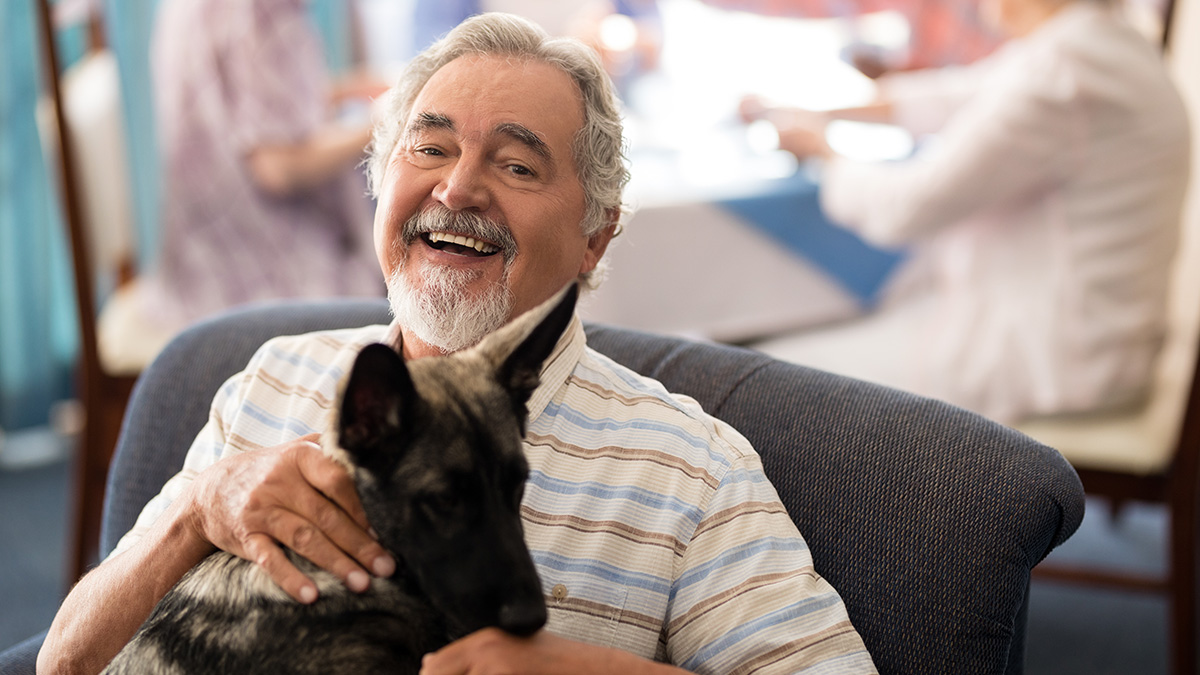It is fair to say that there is a negative perception around senior living in general. That stigma doesn’t paint an accurate picture of reality. When it comes to senior housing, options have evolved significantly over the years, offering a wide variety of choices tailored to meet every desire and need. However, outdated or downright inaccurate myths about senior living communities still exist and persist. These misconceptions may prevent seniors who would greatly benefit from moving to a community from making the transition. In this article, we aim to separate the facts from the myths and debunk some of the most common misconceptions about senior housing.
MYTH 1: Senior Housing is Only for the Very Old and Frail
Reality
While senior housing communities do cater to seniors, they also offer a range of services and amenities that can accommodate people at any stage in life. Whether you’re looking for independent living, assisted living, or memory care, there’s a senior housing community out there that’s right for you.
MYTH 2: Senior Housing is Boring and Lonely
Reality
Another common myth about senior housing they are mostly dull and lonely places to live. This couldn’t be further from the truth. Senior housing communities offer a variety of activities, including exercise sessions, social events, and festive celebrations. A quality senior living facility can provide endless options of activities throughout the day in their community calendar. Typically, there is a staff member and/or team dedicated to planning and executing an active calendar for residents. Many communities offer programs designed to provide residents with activities that nurture the body, mind, and spirit, such as art workshops, yoga, and book clubs. A strong social life for seniors has been linked to many benefits well beyond the obvious as evidenced in a study published in The Journals of Gerontology, Series B: Psychological Sciences and Social Science
Residents don’t need to feel lonely as they can also form close relationships with each other residents through planned or unplanned activities throughout the day. Senior housing staff members are also trained to provide companionship and support to residents.
MYTH 3: Senior Housing is Too Expensive
Reality
According to LongTermCare.gov, 20% of today’s 65-year olds need long-term care for longer than five years.
The cost of senior housing can vary depending on the level of care you need and the type of community, but in general, it’s much more affordable than nursing home care. Many communities also offer a variety of payment options, including monthly payments, lump sums, and sliding-scale fees. Even though the exception, there are times where insurance will cover a portion of long-term needs such as Medicaid, depending on the state.
It’s wise to compare the costs of senior housing with the expenses associated with maintaining an older adult’s home and the potential need for in-home care services. When you factor in the personal care, services, and amenities that are usually included in the monthly fee at a senior housing community, it becomes easier to see what a cost-effective solution it can be.
It’s important to carefully consider the costs associated with maintaining an older adult’s home, such as utilities, lawn care, snow removal, insurance, property tax, maintenance, repairs, and groceries, when comparing the affordability of senior housing options.
MYTH 4: Senior Housing Provides Subpar Medical Care
Reality
The perception that senior housing does not provide adequate medical care is not true at all. Senior housing communities often have trained medical professionals on staff, including nurses and doctors, who support residents with their healthcare needs. In addition, there are regular health check-ups and doctor visits available within the community. It is typical that transportation that is provided to a resident’s established physician and so they can continue the same care they were used to.
MYTH 5: The Food is Awful in Senior Housing Communities
Reality
This is another myth that needs busting! Senior housing communities often have a chef who oversees their dining program, creating delicious and nutritious meals for residents. Many communities also offer restaurant-style dining and a range of menu options to suit diverse preferences and dietary needs.
At home, most of us don’t have professionals creating the menu and preparing the food. Making the right decisions on healthy eating after 60 looks different than our youth and it takes knowledge and know-how to do. In a facility designed for seniors, you have peace of mind that these important choices have been well orchestrated.
At Angel Senior Living communities, there is a dedicated Head Chef and Nutritionist to ensure the meals are delicious and balanced in nutrition. This is just one example of how food is a focus area in quality senior housing communities.
MYTH 6: Senior Housing Offers Hospital-Like Spaces
Reality
Senior housing communities offer spacious residences with all the comforts of home. Most who go on tours of quality senior housing communities would think of the words suite, apartment, or condo vs. a hospital room. Many communities are stylish, sophisticated, and closely resemble resort hotels, providing a comfortable and inviting environment for residents. Now there are all kinds of options for seniors dependent on their wants, needs, and budget.
MYTH 7: Pets are Not Allowed in Senior Housing
Reality
While some senior housing communities don’t allow pets, many do! Senior housing communities understand the importance of pets in the lives of their residents and often welcome them as part of the community. In conclusion, it’s essential to dispel the myths and misconceptions about senior housing in order to make informed decisions about your future or the future of a loved one. By debunking these myths, we hope to provide a clearer understanding of the benefits and options available in senior housing communities. As you consider your options, it’s crucial to visit various communities and gather all the facts, so you can find the right fit for you or your loved one’s needs and preferences.





